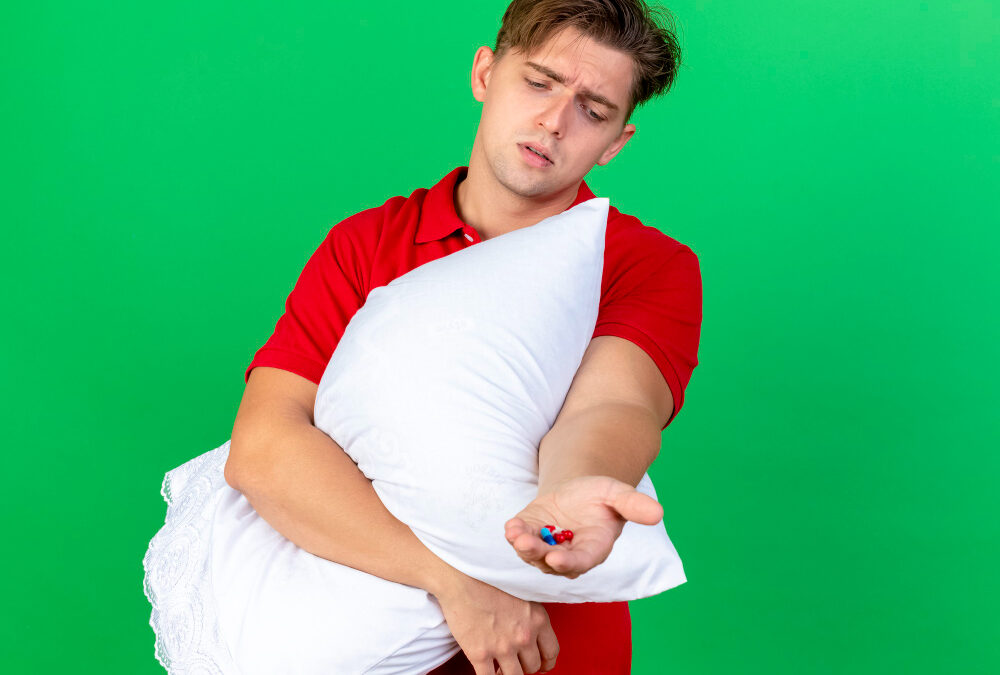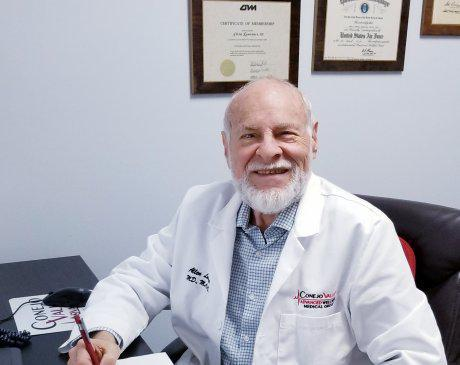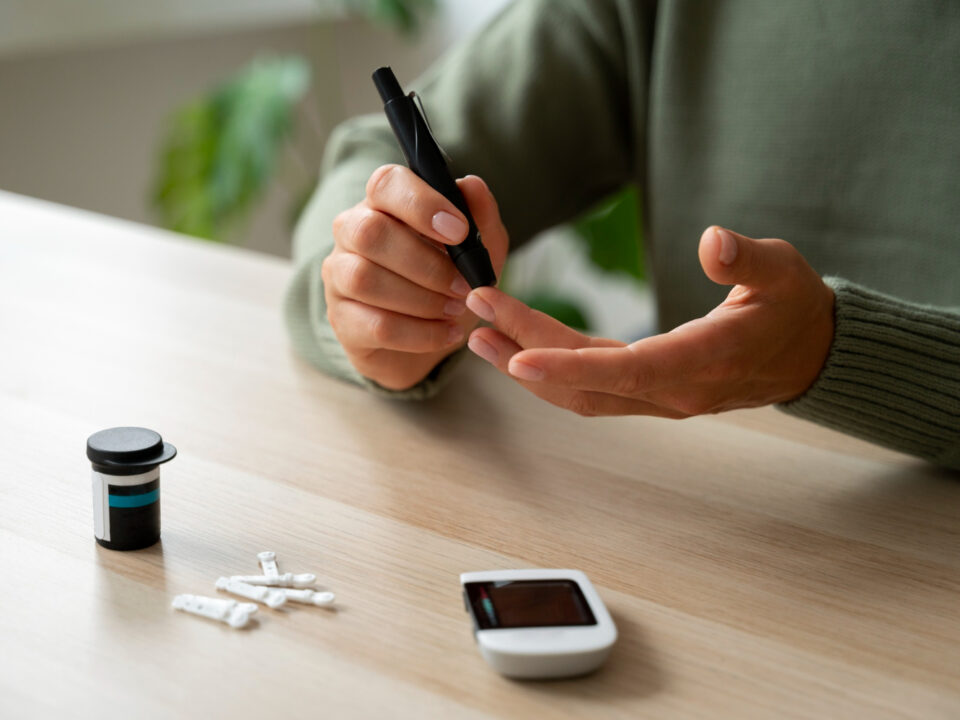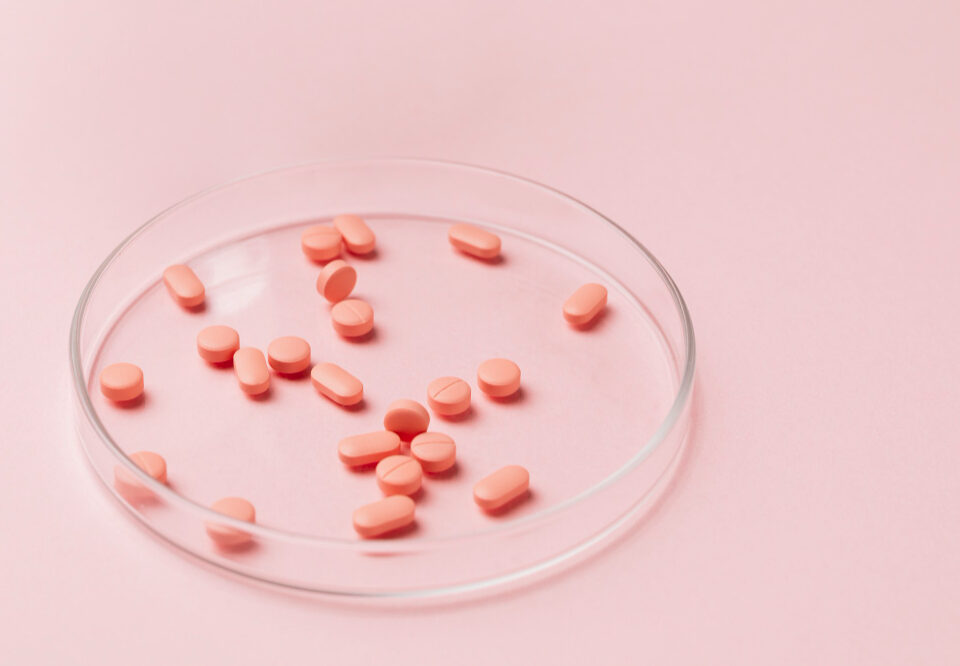- 21103 Vanowen St Woodland Hills, CA 91303 | Call us today!
- 310-879-9266
Evaluation Diagnosis and Treatment of Erectile Dysfunction (ED)

In previous articles we discussed the role of testosterone in 1) creating ED and in 2) treating ED. We did not in those articles look at how ED is diagnosed nor its treatment. For those who are interested, and want answers to the questions of how the diagnoses of low or deficient testosterone related to ED and what the usual work up that needs to be done to prove the relationship between ED and low or deficient testosterone, I have written this article.
Diagnosing ED and Its Causes
Obviously, the first recognition of ED occurs when the man finds that he cannot get an erection. It is a bit more complex than that quite simple observation.
ED stands for Erectile Dysfunction. It is a medical condition characterized by the consistent inability to achieve or maintain an erection sufficient for satisfactory sexual performance. A single episode of not getting an erection does not constitute a diagnosis of erectile dysfunction (ED). Erectile dysfunction is typically diagnosed when the inability to achieve or maintain an erection sufficient for satisfactory sexual performance is either consistent or reoccurs persistently over a significant period of time, usually at least several weeks or several months. A single episode can be caused by many things but it is not usually a recurring problem as most of the time it is situational, too much alcohol, being with the wrong person, stress, anxiety, intermittent depression can all cause a single episode of ED or recurring episodes for a reasonably short period of time. In this case it happens for a while then simply goes away, it is neither consistent nor persistent.
Ongoing ED can have a number of different causes, including physical, psychological, or a combination of both. Common physical causes include cardiovascular disease, diabetes, hormonal imbalances, vascular disease, and certain medications. Psychological causes can include stress, anxiety, depression, and relationship issues.
Erectile dysfunction can significantly impact a person’s quality of life and intimate relationships. It is important for any individual experiencing symptoms of ED to seek medical evaluation and if needed treatment, as ED can sometimes be a sign of underlying health issues that immediately need to be addressed. Treatment options for ED can include lifestyle changes, medications, therapy, or other interventions as determined by a healthcare provider.
The Basic Medical Work Up for ED
- Medical History and Physical Examination:
- Detailed sexual, medical, and psychosocial history.
- Physical examination to assess secondary sexual characteristics and signs of hypogonadism.
- Laboratory Tests:
- Total testosterone levels (measured in the morning when levels are highest).
- Free testosterone levels (if total testosterone is borderline).
- Other relevant hormone levels (e.g., LH, FSH, prolactin, thyroid, when it is felt these may be issues).
- Additional Tests:
- Penile Doppler ultrasound to assess blood flow.
- Nocturnal penile tumescence (NPT) test to evaluate erections during sleep.
Medical, Alternative and Other Treatments For ED
Testosterone Replacement Therapy (TRT):
Once lab testing has been done the results will tell you if your testosterone is low (LowT) or deficient. If your testosterone is low than you should consider TRT as with a low or deficient testosterone there is no other treatment that can give you the best results as will TRT. There is no reason unless you have contraindications to using testosterone (prostate or breast cancer, severe sleep apnea, polycythemia, uncontrolled or severe heart failure, allergy to components of TRT formulations, high risk of prostate complications or uncontrolled hypertension).
- Benefits of TRT: TRT can often help restore normal testosterone levels, if the problem is lowT, then TRT can improve libido, increase lost energy, stabilize chaotic mood, and deal with and resolved erectile dysfunction. TRT can be administered through injections, patches, gels, or pellets. Injection is the very most reliable method for using TRT.
- Risks of TRT: Potential side effects include an increase in red blood cell count (erythrocytosis), prostate issues, cardiovascular risks, and exacerbation of sleep apnea. Regular monitoring by a healthcare provider is essential and most negative side effects can be eliminated or reversed simply by adjusting or better regulating the dosage of the TRT. Each individual type of testosterone treatment has its own benefits and risks this is where your expert hormone specialist physician can best work with you to find the best possible treatment for you.
- Testosterone Replacement Therapy (TRT) Is Available in Many Modalities:
- Injectable testosterone (cypionate, enanthate)
- Transdermal patches or gels
- Testosterone pellets
- Buccal tablets
- Intranasal testosterone
Other Medical Treatments for ED
- Phosphodiesterase Type 5 (PDE5) Inhibitors:
- Also, often know under various pseudonyms, such as: Blue Pill, Boner Pills, Weekend Pill, Rocket Fuel, Love Potion Pills, Magic Bullets, Man’s Best Friend, Happy Pill, Performance Enhancer, Erection Correction to name just a few. They are used to stimulate and maintain erections when erections are not spontaneous. They may be used along or in conjunction with TRT for better outcomes.
- Sildenafil (Viagra), tadalafil (Cialis), vardenafil (Levitra), avanafil (Stendra, Staxyn).
- Benefits: These medications enhance blood flow to the penis, facilitating erections. They can be very effective for many men with ED.
- Risks: Side effects may include headaches, flushing, nasal congestion, and, rarely, vision or hearing changes. They are contraindicated in men taking nitrates for heart conditions.
- Contraindications: Phosphodiesterase type 5 (PDE5) inhibitors have several contraindications. These medications should not be used in the following situations:
- Concurrent use of nitrates, severe cardiovascular disorders, severe hypotension, uncontrolled hypertension, severe liver impairment, severe renal impairment, severe renal impairment, allergy to pde5 inhibitors, or concurrent use of Guanylate Cyclase Stimulators (riociguat).
- Certain Anatomical Deformities of the Penis (Peyronie’s disease).
- These contraindications highlight the importance of a thorough medical evaluation before starting PDE5 inhibitors to ensure patient safety and efficacy.
- Also, often know under various pseudonyms, such as: Blue Pill, Boner Pills, Weekend Pill, Rocket Fuel, Love Potion Pills, Magic Bullets, Man’s Best Friend, Happy Pill, Performance Enhancer, Erection Correction to name just a few. They are used to stimulate and maintain erections when erections are not spontaneous. They may be used along or in conjunction with TRT for better outcomes.
- Lifestyle Modifications: Improve your lifestyle start living a healthier more moderate and successful life.
- Benefits: Weight loss, regular exercise, a healthy diet, smoking cessation, and reduced alcohol consumption and stress management can working together improve overall health and testosterone levels.
- Risks: Generally low risk, though these changes require commitment and sustained effort. The benefits extend beyond sexual health, improving overall well-being. If there are one or more inner, emotional, psychological or subconscious unresolved conflict(s) unless therapy is done, they may never be found or dealt with, hence they are left unresolved and this may leave the physical problem to become chronic and possibly even permanent.
- Psychological Counseling: Addressing any, all, underlying psychological issues such as what is causing you to experience anxiety, depression, or relationship problems is essential in life. It is, I believe what life is really all about. Finding and becoming your highest, healthiest and best self. (I discuss this topic in great detail in many my already published books). Quite often ED and impotency are caused by emotional and psychological problems dealing with specific partners, or generally with women or other men as well as self-image. These need to be found, dealt with and resolved for overall health and ED and impotency are just outward signs telling the man (or woman) these issues must be dealt with.
- Sex Therapy: Working with a therapist to address psychological factors contributing to ED.
- Cognitive-Behavioral Therapy (CBT) and Cognitive Behavioral Training (CBTr): Techniques to change negative thought patterns and behaviors related to sexual performance.
- Couples Counseling: Therapy to improve communication and intimacy between partners.
- Benefits: Addressing underlying psychological issues and improving communication between partners can enhance sexual desire and relationship satisfaction. Therapy can help manage stress, anxiety, and depression. Solution of image and sexual problem can heal many aspects of the individual’s life.
- Risks: The main risk is the time commitment and the need for a supportive environment. Some men may initially feel uncomfortable discussing intimate issues. The main risk is choosing the wrong therapist, someone who is insensitive, misses the mark and does not help you find, deal with and resolve your inner conflicts as the need to and must be resolved, hence this conflict maybe left unresolved and this may leave the physical problem to become chronic and possibly even permanent.
- Vacuum Erection Devices (VEDs):
- This is a mechanical device that create a vacuum around the penis, drawing blood into it to cause an erection.
- Benefits: This non-invasive device creates an erection by drawing blood into the penis through use of suction. This may be effective a highly effective method for men who cannot take oral medications. It is generally safe and when done right can be quite effective.
- Risks: Possible side effects include: bruising and discomfort. It may take practice to use the device effectively. It may to some men feel artificial and hence cause a conflict within their self-image. If there are one or more inner, emotional, psychological or subconscious unresolved conflict(s) unless therapy is done, they may never be found or dealt with, hence they are left unresolved and this may leave the physical problem to become chronic and possibly even permanent.
- Penile Injections and Intraurethral Suppositories:
- This requires preparation and planning and giving one’s self an injection or inserting suppository into your penis, There may be discomfort associated. Injectables are: Alprostadil (Caverject, Edex), and combination medications (Bimix, Trimix). ED Intraurethral suppositories: Muse (Alprostadil)
- Benefits: Alprostadil injections or urethral suppositories can directly induce enhance blood flow to the penis and create an erection. They can be a good option for men who do not respond to oral medications.
- Risks: Pain at the injection site, risk of prolonged erection (priapism), and urethral irritation are potential side effects. Proper training is required to administer these treatments safely. It may to some men feel artificial, also reduces spontaneity, and hence cause a conflict within their self-image. If there are one or more inner, emotional, psychological or subconscious unresolved conflict(s) unless therapy is done, they may never be found or dealt with, hence they are left unresolved and this may leave the physical problem to become chronic and possibly even permanent.
- Penile Implants:
- Penile implants, also known as penile prostheses, are medical devices surgically inserted into the penis to provide a permanent solution for erectile dysfunction (ED) when other treatments, such as oral medications or injections, are ineffective or contraindicated.
- There are two main types of penile implants: inflatable and malleable (semi-rigid) devices. Inflatable implants typically consist of two or three components, including cylinders placed in the penis, a pump located in the scrotum, and a reservoir hidden in the lower abdomen, allowing the user to achieve an erection on demand by transferring fluid into the cylinders.
- Malleable implants, on the other hand, consist of bendable rods that provide a constant state of firmness but can be positioned as needed. Penile implants have a high satisfaction rate among patients and their partners, offering a reliable and discreet solution to ED, though they require surgical intervention and have associated risks such as infection and mechanical failure.
- Inflatable implants maybe required because of neurologic damage secondary to injury or diabetes.
- Benefits: Surgical option with the insertion of a surgical implants to provide a permanent solution for severe ED unresponsive ED. They have high satisfaction rates among men and their partners.
- Risks: Surgical risks include infection and device malfunction. Recovery time is required post-surgery.
- Vascular Surgery:
- Procedures to repair arteries that can improve blood flow to the penis.
- Alternative Treatments:
- Herbal Supplements and Natural Remedies:
- Ginseng
- L-arginine
- Yohimbine
- Horny goat weed (Epimedium)
- Acupuncture:
- Traditional Chinese medicine technique that may help with ED by improving blood flow and reducing stress.
- Herbal Supplements and Natural Remedies:
- Emerging and Experimental Treatments:
- Platelet-Rich Plasma (PRP) Therapy: Injection of PRP to promote tissue regeneration.
- Stem Cell Therapy: Use of stem cells to regenerate erectile tissue.
- Low-Intensity Extracorporeal Shockwave Therapy (Li-ESWT): Non-invasive treatment to improve blood flow and stimulate tissue regeneration.
- Gene Therapy: Experimental approaches to correct underlying genetic causes, if so diagnosed, of ED.
The choice of treatment depends on the underlying cause of ED, the patient’s overall health, and preferences. A combination of medical, alternative, and lifestyle interventions often yields the best results. Consulting with an expert, a specialist in ED, is essential to determine the most appropriate and effective treatment plan.
Monitoring and Follow-Up Of ED Treatments
- Regular Monitoring is generally required:
- Regular follow-up appointments to monitor testosterone levels and adjust TRT dosage if necessary.
- Monitoring for potential side effects of TRT, such as erythrocytosis, prostate issues, and cardiovascular risks.
- Patient Education and Psychosocial Support:
- Whenever ED is treated the patients must be educated and worked with to make sure that he has realistic expectations and for the best possible potential outcomes of TRT and/or other ED treatments.
- Support both medical and psychosocial is essential. It should be ongoing and designed to address the emotional and relational aspects of ED.
- As repetitively said above: If there should be one or more inner, emotional, psychological or subconscious unresolved conflict(s), then therapy should be done. These conflicts must be found or dealt with and resolved if you leave them unresolved the physical problems associated with ED can become chronic and possibly even permanent.
Decreased libido and erectile dysfunction are complex issues that often significantly affect and impact the man’s life and his relationships. Understanding the role of testosterone and the various other physical, emotional and social factors that can and do contribute to these conditions is crucial for effective management. A comprehensive approach, involves a comprehensive medical treatment, lifestyle changes, and psychological support, as these offer the overall best chance for restoring sexual function and improving quality of life.
Open communication between partners and healthcare providers is vital. By addressing these issues proactively and collaboratively, men and their partners can find solutions that will enhance their sexual health and relationship satisfaction. It is essential to consult with hormone specialist to develop a personalized treatment plan that balances benefits and risks, ensuring the best possible outcomes.

Article by Dr. Allen Lawrence, M.A., M.D., Ph.D.




